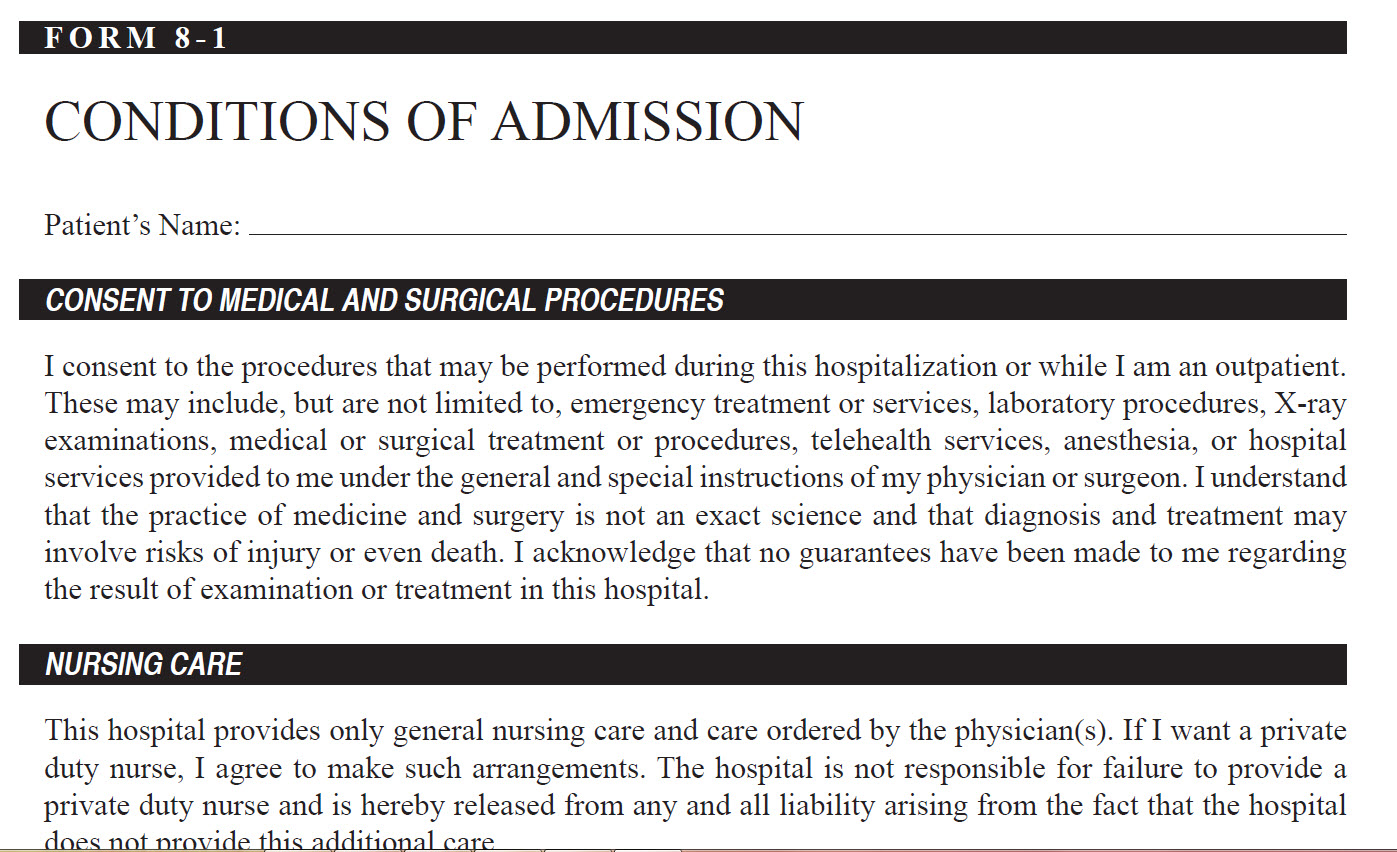A California court of appeals ruling that a Conditions of Admissions (COA)form is a binding financial contract has the unintended consequence of confirming previous CMS citations based on obtaining signature to the COA prior to completion of the Medical Screening Examination.
The Nolte v. Cedars-Sinai Medical Center case ruled that a patient could not avoid undisclosed charges because the COA was sufficient to establish a financial contract. The EMTALA cases had previously taken the same position, and financial registration prior to completion of the MSE is considered a violation by CMS Guidance.
The original argument was that the COA was necessary for care because it contains consent to treatment language.
In the citation cases, the issue was not the consent issue, and CMS accepted plans of correction where the hospital separated the consent from the remainder of the form. At issue in the California form 8.01 is the extensive language that accepts financial responsibility, gives the patient access to the hospital chargemaster, assigns insurance benefits, and contains information on physician billing.
The Nolte court ruled this language is a financial contract that is being required before the EMTALA mandated services. Under EMTALA, however, must be rendered regardless of means or method of payment, and CMS enforcement establishes that these financial demands cannot be made on the patient or the patient’s family prior to completion of the MSE and initiation of stabilizing care.
What seems like routine and harmless paperwork has the effect of putting financial demands on the patient prior to EMTALA compliance.
See EMTALA Field Guide 3rd Edition, pp 220-229.

It would not hurt to date and time it, but since it is not an entry by a provider, CMS does not mandate date and time on patient entries from what I can tell.